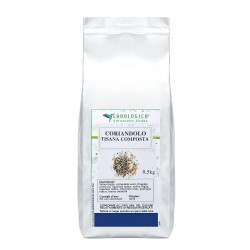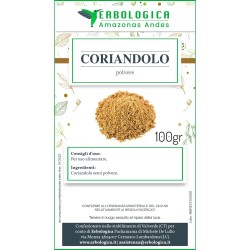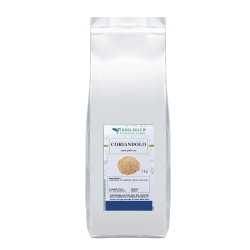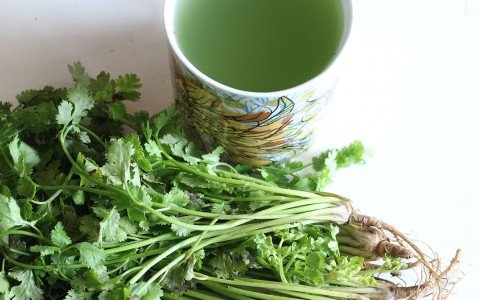
Il coriandolo è noto anche come cilantro, prezzemolo cinese o indiano e appartiene alla stessa famiglia di carote, cipolle e aglio.
È una piccola erba verde con un aroma distinto, che può essere utilizzata in vari modi per aggiungere sapore ai piatti senza essere eccessivamente dominante.
Il coriandolo ha molti usi e benefici. Gli oli essenziali in esso contenuti comprendono cariofillacee, eugenolo, linalolo e limonene.
Queste proprietà lo rendono un'eccellente aggiunta alla dieta su base regolare.
Nutrizione
Proprietà antiossidanti
Altri benefici
Benefici per la pelle
Ricette con coriandolo
Conclusione
Il coriandolo è un alimento ipocalorico e povero di grassi che può essere consumato quotidianamente senza rischi per la salute.
È una buona fonte di fibre alimentari, vitamine A, B, C ed E, minerali come ferro, potassio, magnesio e zinco.
È anche una fonte di proteine ed è noto per aumentare le difese immunitarie.
Va notato che le foglie fresche di coriandolo sono una buona fonte di vitamina A, mentre i semi di coriandolo essiccati sono una buona fonte di vitamina E.
Quindi, se si usano le foglie di coriandolo, assicurarsi di assumere una quantità sufficiente di vitamina A.
Se si usano i semi di coriandolo, assicurarsi di assumere una quantità sufficiente di vitamina E.
Il coriandolo è ricco di potenti antiossidanti che aiutano a combattere lo stress ossidativo.
Può prevenire i danni al DNA e ridurre il rischio di alcuni tipi di cancro.
Ha anche proprietà antinfiammatorie che possono aiutare a combattere l'asma, l'artrite e altre malattie infiammatorie.
I semi di coriandolo contengono elevate quantità di quercetina e kaempferolo, due potenti antiossidanti.
Anche le foglie di coriandolo sono ricche di quercetina.
La quercetina è un flavonoide che aiuta a contenere gli effetti dannosi dell'infiammazione cronica, associata a molte malattie comuni.
Il coriandolo può ridurre il rischio di malattie cardiache. Inoltre, è stato utilizzato per trattare l'ipertensione.
Il coriandolo può aiutare a risolvere i problemi digestivi.
Può essere usato per trattare indigestione, nausea o vomito. Il coriandolo è stato utilizzato anche per trattare il mal di stomaco e la colite.
Il coriandolo può rafforzare le difese immunitarie.
Può anche aiutare a combattere i sintomi della tosse e del raffreddore.
Il coriandolo può aiutare a combattere il diabete.
Il coriandolo può aiutare a combattere la depressione.
Il coriandolo ha proprietà antiossidanti che possono aiutare la nostra pelle e prevenire l'invecchiamento.
Il coriandolo è ottimo per le pelli grasse e acneiche perché ha proprietà astringenti.
Può aiutare a guarire le macchie e le cicatrici riducendo la produzione di olio e rimuovendo le impurità dalla pelle.
Il coriandolo può essere usato anche per trattare le pelli sensibili perché è calmante.
Il coriandolo può essere usato per fare un impacco per il viso.
Schiacciare e polverizzare alcuni semi di coriandolo, mescolarli con un po' d'acqua e applicarli sul viso.
Lasciare asciugare e poi lavare. Il coriandolo può anche essere mescolato con il miele e applicato sul viso per ottenere una pelle luminosa.
Chutney di coriandolo
4 cucchiai di coriandolo tritato, 1 peperoncino verde tritato, 2 cucchiai di zenzero tritato, 1 cucchiaino di semi di cumino, 1 cucchiaino di pepe nero, 1 cucchiaino di sale.
Riso al coriandolo - 2 cucchiai di coriandolo tritato, 1 cucchiaino di semi di cumino, 1 cucchiaino di pepe nero, 1 cucchiaino di sale
Effetti collaterali del coriandolo
Il coriandolo dovrebbe essere evitato dalle persone che seguono una dieta a basso contenuto di sodio, che sono incinte o che allattano, che sono diabetiche o che soffrono di glaucoma.
Il coriandolo può reagire con alcuni farmaci, come i farmaci anticoagulanti, i farmaci per il diabete e i farmaci usati per il trattamento del glaucoma.
Chi ha una storia di calcoli renali dovrebbe evitare un consumo eccessivo di coriandolo.
Il coriandolo può causare reazioni allergiche in alcune persone.
Alcuni dei sintomi associati a una reazione allergica includono prurito, eruzione cutanea e gonfiore.
Questi sintomi sono più probabili nelle persone con una storia di allergie.
Le persone affette da diabete dovrebbero evitare di consumare il coriandolo perché può ridurre i livelli di zucchero nel sangue.
Il coriandolo è un'erba versatile con molti usi e benefici.
È ricco di antiossidanti che aiutano a prevenire lo stress ossidativo, a sedare l'infiammazione cronica e a prevenire i danni al DNA.
Il coriandolo può essere utilizzato in molti piatti e aggiunto a insalate, zuppe e riso.
Il coriandolo può essere utilizzato fresco o essiccato.
Il coriandolo fresco può essere conservato in frigorifero per una settimana.
Il coriandolo essiccato può essere conservato in un contenitore ermetico e utilizzato fino a 6 mesi.
I semi di coriandolo possono essere macinati o schiacciati e poi utilizzati in cucina.
Le foglie di coriandolo possono anche essere aggiunte ai piatti o consumate come guarnizione.


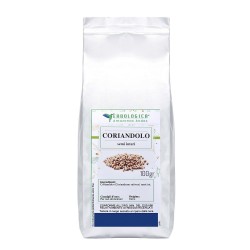
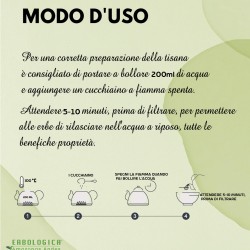
-250x250.jpg)
